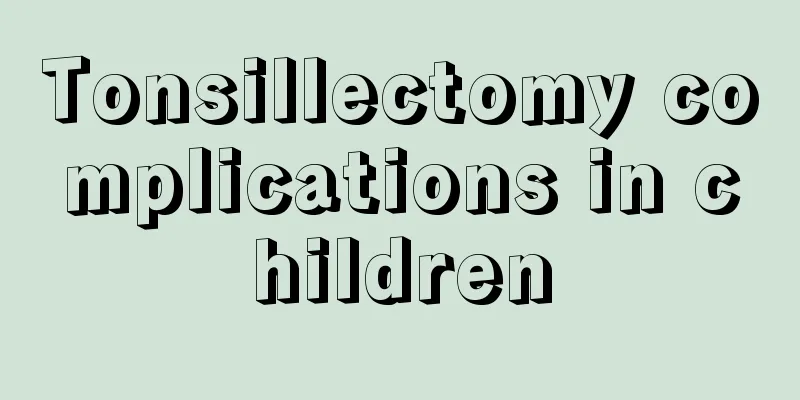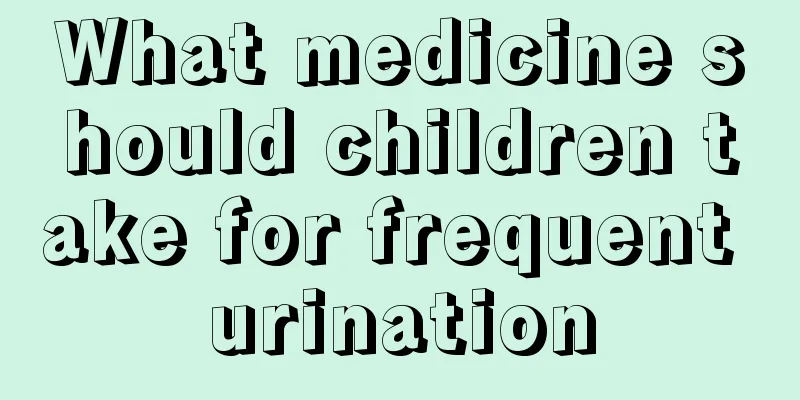Tonsillectomy complications in children

|
Tonsils are a type of lymphatic organ. They can effectively produce antibodies to help the body resist viruses. At the same time, tonsils are located in the throat and can also serve as a barrier for our body to keep external viruses out. If the tonsils are diseased, it is best to remove them surgically, but there may be many sequelae after the operation. If not properly cared for, permanent physical damage may occur. After tonsillectomy, there are several situations that often occur, including continuous bleeding. It is normal to have a small amount of bleeding after tonsillectomy. If the amount of bleeding is heavy, especially if blood is vomited out of the mouth, you must consult a doctor in time to find the bleeding site and then perform emergency treatment, or apply pressure to stop the bleeding, and then sew again. This is something you need to know. Another is local infection. For example, if the body temperature remains high after surgery, above 38.5 degrees, or if the body temperature is still not normal three days after surgery, and local lymph nodes are swollen and painful, you must be careful whether there is a local infection. Another thing is the systemic condition. Aspiration may sometimes occur during surgery. For example, breathing bloody saliva into the respiratory tract can cause aspiration pneumonia. This is also an issue that everyone needs to be very vigilant about. Risks of tonsillectomy in children: 1. In childhood, it is an active immune organ that contains lymphocytes at various stages of development, such as T cells, B cells, macrophages, etc. Therefore, it not only has humoral immunity, producing various immunoglobulins, but also has certain cellular immunity. The immunoglobulin IgA produced by tonsils has strong immunity and can inhibit the adhesion of bacteria to the respiratory mucosa, inhibit the growth and spread of bacteria, and also has a neutralizing and inhibitory effect on viruses. IgA can also enhance the function of phagocytes through complement activation. These are most active between the ages of two and five. 2. From an immune point of view, tonsils should not be removed casually due to their immune effects on the body. Enlarged tonsils in children are a normal physiological phenomenon. If the enlargement does not affect breathing and swallowing and does not cause serious clinical manifestations, they should not be removed. You can use the Bian Tao Kang Che Yu combination. For external use only, stick it on the neck, no swelling or pain, very effective. Because removal may affect the local immune response and reduce the body's ability to fight infection. 3. If tonsillitis recurs, hinders breathing and swallowing, and causes diseases such as rheumatism and nephritis, it should be removed in time. Generally, tonsillectomy should be performed on children after the age of four, and it is more appropriate to wait two to three weeks after the inflammation subsides. However, if the attacks are too frequent and you cannot wait too long, you may consider surgery a few days after the attacks subside. |
<<: What are the consequences of taking too much anti-inflammatory medicine for children?
>>: Can epilepsy in children be cured?
Recommend
Baby's breathing has phlegm sound in the nose
If the baby has phlegm in the nose when breathing...
What to do if your three-year-old baby has allergies
Babies are very fragile when they are young. Beca...
What are the baby growth indicators?
Every parent hopes that their children can grow u...
What are the methods of steaming rice for babies?
Many mothers believe that breast milk is the best...
Why are eight-month-old babies' legs weak?
An eight-month-old baby should be able to sit up ...
What causes swollen lymph nodes in the child's abdomen?
I believe many parents have heard of the disease ...
What are the early signs of autism in children?
Many hospitals have recently reported that an inc...
What to do if your child's genitals itch
When children are young, all hygiene issues are t...
Can children eat cicadas?
There are a lot of cicadas in summer, they can be...
What is the best way to wean your baby?
Weaning is very painful for our babies and it is ...
How to treat a red birthmark on a newborn's face
Newborns are difficult to take care of. Many peop...
What to do if your baby has trouble breathing while sleeping
Babies have many common problems. To solve them, ...
Why do children sometimes blink?
Blinking is a very normal thing for everyone, no ...
Children's intelligence development encyclopedia
Many parents pay great attention to their babies&...
What to do if a child has a fever in autumn
Everyone knows that the temperature in autumn is ...









